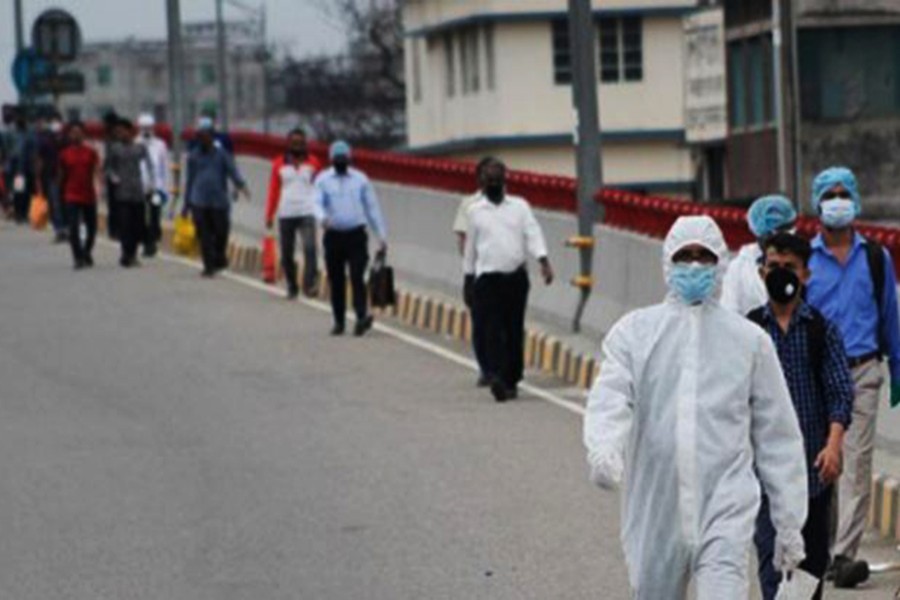At least one member of 34 per cent of households lost jobs or earning opportunities across the country in the last year due to the Covid-19 pandemic, according to a survey.
Besides, 77.23 per cent of the households surveyed said their monthly average income decreased comparing to the pre-pandemic period, it revealed.
The extent of job loss and income decrease was also higher in households with migrants comparing to others, said the survey titled 'Demographic and socio-economic changes induced by the Covid-19 pandemic in Bangladesh: Dynamics and challenges of new circumstances.'
The findings of the survey were presented at a virtual dissemination programme on Wednesday evening.
Non-governmental organisation BRAC, UN Women and New York University had jointly conducted the research which highlighted the demographic, economic and social changes in Bangladesh's urban, per-urban and rural areas induced by the reverse migration.
BRAC's Senior Director KAM Morshed presented the key findings while New York University's centre on international cooperation programme lead Leah Zamore moderated the discussion.
Country Representative of UN Women Bangladesh Shoko Ishikawa, Columbia University acting director Daniel Naujoks and a director of BRAC USA Adam Schwartz also spoke at the virtual programme.
According to the research, most of the households received inadequate public support that is helpful to reduce the debt burden.
"A higher percentage of urban household or 24 per cent reported receiving support compared to rural ones (15 per cent)," it said.
As a result, the family savings and net worth depleted substantially, the report said, adding that savings fell by 62.31 per cent and household debt increased by 30.9 per cent.
The research data was collected from 6,370 households in 21 districts, focusing on migration-prone regions between December 10 and December 25 with the reference period of April-October 2020.
The research also revealed that international returnee migrants aged 35 years and above were 44 per cent, many of whom had a lesser chance to go back due to age-related risk aversion and other factors.
The research recommended that policymakers should take initiatives to allocate additional resources for the support of dependent people including old aged at the local level. It also said the strong coordination between the government and private sector is needed to facilitate the reintegration of returnee migrants.
"Also the smooth return of international migrants to their workplace should be facilitated with the help of destination countries and UN agencies," it said.
Referring to the research, Shoko Ishikawa said the long closure of schools in Bangladesh due to the pandemic culminated into some social challenges including child marriages.
She also underscored the need for providing the women migrants with special support so that they can get back their jobs.
Daniel Naujoks said Bangladesh has a very large diaspora of population spreading in different parts of the world.
Terming the migrants vulnerable people, he said the pandemic has exacerbated their conditions who usually migrate to a new place in a bid to get rid of poverty.
saif.febd@gmail.com


